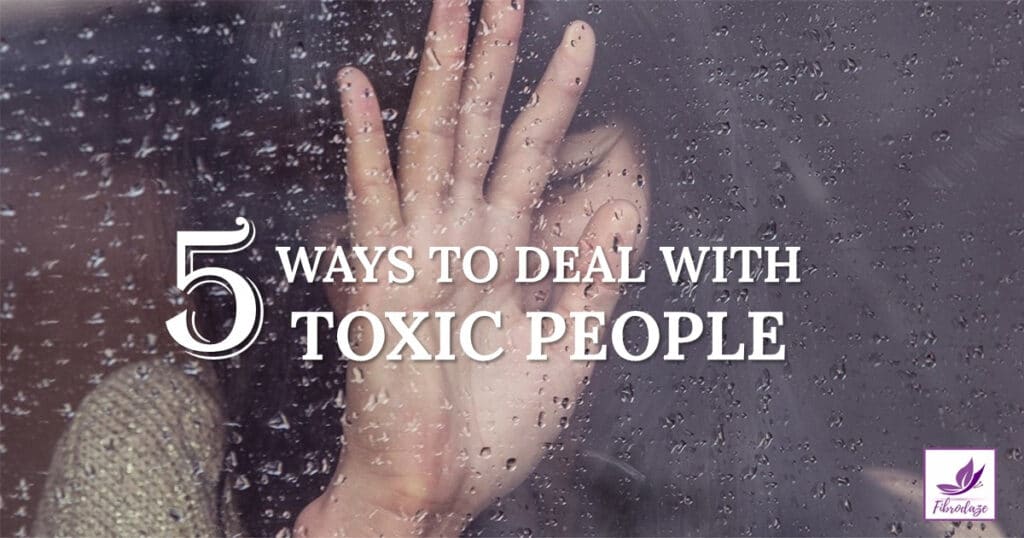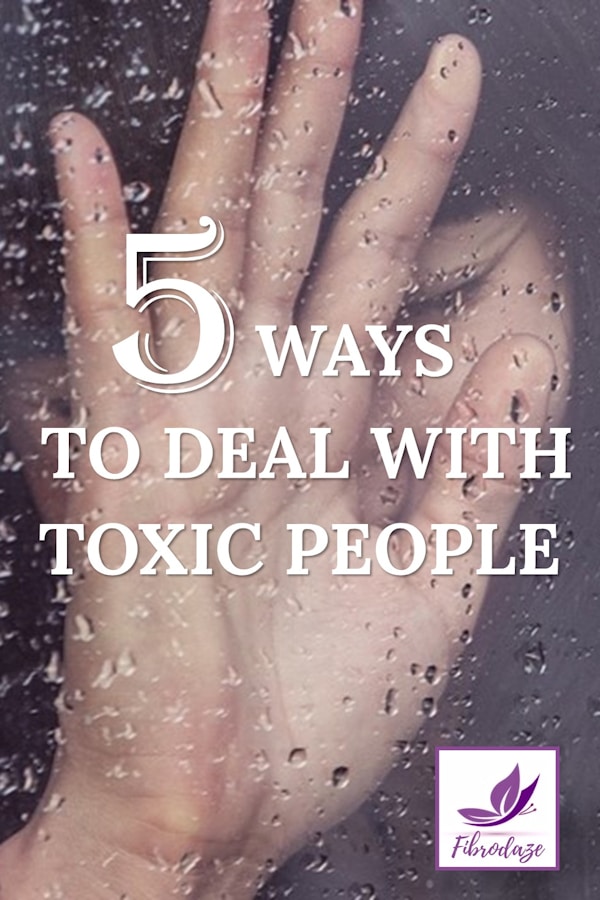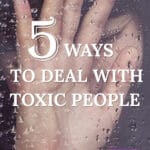We have all had toxic relationships. They may have been with family, friends, partners, coworkers or a boss. Toxic relationships are dominated by hurtful and belittling comments, constant sarcasm and passive-aggressive behaviors. These unhealthy relationships drain your energy, bring unnecessary conflict and drama to your life, trigger feelings of low self-esteem and cause significant long-term stress.

Having a chronic illness can certainly put a strain on relationships. Healthy and supportive relationships can be our greatest asset. But when someone makes you feel bad about yourself or guilty over your illness – that relationship is toxic and has a negative impact on your health.
Numerous studies have shown the damaging health effects of toxic relationships. Chronic stress weakens the immune system and can lead to chronic illness. People who have a chronic illness and experience emotional stress from a toxic relationship are likely to see a worsening in their symptoms.
Dealing With Toxic Relationships
A healthy relationship is give and take. But if you are constantly giving and the other person is always taking, you are putting your health on the line. While you cannot control the actions of toxic people, there are some ways you can deal with their effects on your life.
Here are 5 ways to deal with toxic people:
- Don’t make excuses for their behavior. – Toxic people won’t change their behavior if you make excuses for them. See the relationship for what it is. Calmly let them know their toxic behavior is not acceptable anymore.
- Don’t take their behavior personally. – Difficult and negative people have toxic things to say about everything and to everyone. They are often subconsciously trying to make other people feel how they feel about themselves. So don’t take what they say personally.
- Set boundaries. – You cannot control the other person. You can control your own boundaries…the amount of time or frequency of contact, your behaviors and your responses. Setting boundaries that respect your needs can help you redefine a relationship on your terms.
- Put yourself first. – When toxic people are causing you stress, the last thing you want to do is allow a toxic person to influence your physical and emotional well-being. Feel free to excuse yourself to relax and reflect away from their obnoxious behavior.
- Know when to let go. – Do you really need this person in your life? Sometimes, it is just too difficult to deal with a toxic person’s behaviors, and you may be better off without that person in your life. It doesn’t mean you hate this person or wish them harm. It simply means you care about your own health and well-being.
There are times when relationships need to be recognized as damaging. It’s important for all of us to routinely take inventory of our support systems and care enough about ourselves to free ourselves from toxic relationships.
Conclusion
Dealing with chronic illness is draining enough, we do not need to put up with toxic relationships on top of it. We have to minimize the things in our lives that can make our symptoms worse. As painful as it can be, sometimes that means eliminating people.
Have you had toxic people in your life? What ways have you dealt with these situations? Please share by leaving a comment below.
Pin for Later






Thank you for writing this. These 5 things you need to do are exactly what I am doing and needed reminding. I’ve just woken up to this whole narcissistic husband thing (24 years on, I might add…and no…not stupid…just blind), am 59 years old a few days ago and trying to figure out if it’s better to split and be flat broke in my old age or stick it out and try to build a life within a life. I developed Fibro 3 years in. I was in such a state, any touching was painful. So this January I found an article called The Emotionally Distant Husband. I told him I wanted him to read it, then talk to me about us and initiate the conversation. Four months later, he still had not talked to me yet expected to receive affection, hold my hand, etc. It’s been 7 months now and I have emotionally removed myself to the point he cannot hurt me but I am not willing to loose me in this so not exactly sure how that will work out in the long run. He knows he really screwed up but as you also know, they cannot accept responsibility for their own actions so he’s pretty frustrated at the moment. It’s a trip to watch cuz when he started the “everything’s my fault” business I told him “NO.” “You don’t get to play “poor me.” YOU made a choice.” And he did. I’m hoping he will remain civil (I like my home and we actually get along well aside from all the underlying crap) so we can remain in our home. If not, it’s over. Never thought about being disabled and divorcing at 59 years old. Just flippin’ lovely. I’m pretty mad at him ‘cuz I suspect he has known this about himself and he let me suffer because of it for years.
Hi, Sandi. Thanks for sharing your story. I am feeling disconnected from my husband right now, too. Although he can be a little narcissistic, that’s not the problem. The truth is he drinks too much. We are going through hard times right now and he is drinking even more and becoming more distant. Hiding from the problems instead of dealing with them. I am 60, fighting for disability and not sure how much more I can take. Sounds like we are both weighing our options right now. I wish you the best and I really hope things work out for you.